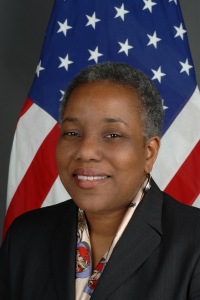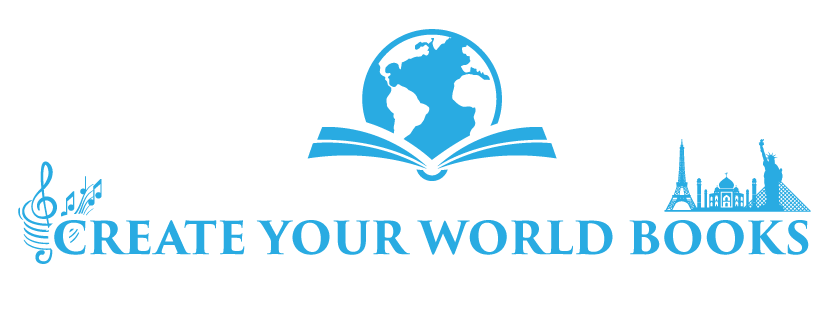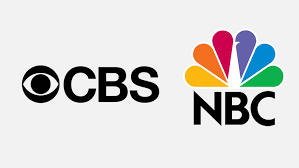By Umar Alim Al-Junaid
One of the hardest things to be is an American citizen who speaks other languages, but being an African- American who speaks several languages has its own unique set of issues. For one, 99.99% of the time you feel as if you are the only person within a 3,000 mile radius who speaks another language, you find yourself searching through outlets such as Youtube for people who look like you that speak several languages, and when you do find them, you clamor like a lonely, desperate adolescent. You find yourself reaching out to them on every social network there is – begging and hoping that they will add you to their inner circle of coolness. By the way, thank you Moses McCormick, Idahosa Ness, and David Mansaray.

Meanwhile in real life, everyone in the community is so impressed that you speak 3 or 4 languages, but they want no parts of learning one for themselves…or maybe they just don’t know where to start. Either way, this is what inspired me to write my first book The Book on Language Learning: 10 Reasons Why African Americans NEED To Learn a Second Language. My aim was to not only appeal to the “feel good” reasons why African-Americans need to learn a second language (i.e. enjoying diverse foods, reveling in good music, and pursuing love in other cultures), but also to the more practical reasons, such as understanding history, economics and geopolitics. I also wanted to provide further insight on how being monolingual over the generations has been detrimental to our present and how being bilingual will be critical for our future survival as global citizens.

I am a multilingual Emcee, so I enjoy producing rap music in all the languages I speak. Naturally, when I first came across Susanna Zaraysky’s great work a few years back, I was excited and impressed that she is an advocate of using music to learn languages. Still, I noticed something else that was a bit disturbing: I was bothered by the fact that I have not seen or met many female polyglots. In fact, when I looked around the African American community, I was even more disturbed because I noticed that there is a severe lack of female representation in the language community; so, consequently there are no women being celebrated. That’s not to say that there aren’t African American men and women in high places who aren’t multilingual. For example , we have Ambassador Pamela Spratlen -nominated to the position by President Barack Obama on January 5, 2011, and who speaks Russian, French, and Spanish. There’s also Mr. Andrew Ballen -CEO/Founder of AVD Digital Media, who has made his bones over in China with a high command of Mandarin.
But, in my own personal life – within my wide circle of friends from all walks of life, different places, and different social economic standings – I am hard-pressed to encounter a Black woman or man who speak more than one language. I literally know of ONE: Ms. Whitney “Phylliz Sophikal” Boyd, a native of Miami, Florida currently working in Atlanta. Ms Boyd is worth noting because not only is she bilingual, but she is also a brilliant educator, artist, and scholar holding a Masters in Pan-African Studies.
So when I asked Ms. Boyd about the importance of African-American people – and particularly African-American women – learning languages, she remarked:
“As a high school Spanish teacher, it is immeasurably disparaging to hear students complain about the uselessness of learning a second language. What many people of color fail to realize is that knowing a second language is as important for one’s personal development as it is for job security. As a people, we are overdue for a paradigm shift toward global thinking and global citizenship, and because women are statistically more present in the lives of our children, it is up to us to expose them to language skills and the beauty of cultural diversity.”
Now as you read this you may be asking yourself “Why is everything so Black and White?” or “Why does everything have to be about race?” or even “Why does it always come down to the ‘gender war’?” Well, the simple answer is…because this is the good ol’ US of A and at the end of the day it is about race, color, and creed; it is ALL economic, and African-Americans are getting left behind, yet again.
While writing this article, I read a recent post, What Facebook executive’s new book tells about women, success & foreign languages on Susanna’s site. This post highlighted the accomplishments of Sheryl Sandberg, Chief Operating Officer of Facebook who also made the cover of TIME magazine. In this very informative article, Susanna had mentioned how she was upset with the article in TIME magazine because, as she puts it, “The article reinforced what I was already suspecting was the explanation for why we don’t see more female polyglots being public about their foreign language successes.” She goes on to explain that “women’s success is not appreciated by [her] peers. Men’s success is appreciated.”
Now I have noted all throughout my book that the lack of bilingualism is a national issue, but I do keep it real with the reader because – like everything else in this country – when it gets broken down into simple terms, White men sit at the top, White women are second, “everyone else” third, Black women fourth, and Black are men last. In other words, if America as a whole is doing poorly at something, African-Americans suffer the worst, and when America is doing well at something, African-Americans usually get little to no share of the spoils.
As I read Susanna’s article (from an African-American perspective), I could not fathom any issues arising from being the Chief Operating Officer of Facebook because we rarely see that type of success in our community in the first place, whether it be male or female. Nonetheless, her point was well-expressed and well-received.
In addition, I made sure to write the book with the youth in mind because America needs to start raising a generation of bilingual citizens. As a kid growing up in monocultural America, I was always interested in other cultures. I can remember one of my early crushes – she was a beautiful Filipino girl who I played chess against, and who was always by my side when we played the “Oregon Trail.” Now, being in middle school, “by my side” meant that the teacher just sat her next to me in the circle along with 14 other students, but you get the point. And it was in the early 1990’s that my obsession with Hip-Hop, African history, World history and Rick Steves:European Travels that would encourage me to eventually learn other languages. The educational system here in America has done an extreme disservice to its youth by not implementing a serious foreign language learning matrix into its curricula. It took me a long time to get back to my dream of learning a second language –yes, I said dream. That is how bad it is.
As it was then, so it is now that learning a second language in school is an exception, not the rule. And because it was not the rule, we have created generations of Americans who are averse to learning foreign languages and usually point back to school as the reason why they stopped learning them in the first place. Thus, the cycle of monolingualism has, in my not-so-humble opinion, perversely affected the society to the extreme that, even with the World Wide Web, America’s youth are light years behind children in other countries who already speak English as a second or even third language. Not to mention the parents of these monolingual children who may, themselves, need to pick up Spanish to earn better pay at their jobs.
Still, everything is not gloom and doom because America, with all its cultural diversity, can turn this around. African Americans in particular are capable of achieving this well. I am the proof of this fact. See, I did not start learning a second language until my early thirties, and since then I have learned five languages and written a book about it with the hopes of being a positive contribution to both the African-American and language communities as a whole.
Many in the African –American community may ask “How can I learn a second language when I can’t afford Rosetta Stone?!”
I have never used Rosetta Stone. But, I do know that it’s expensive so let me give the readers a few suggestions on how to learn a language on a budget:
YouTube– FREE! Look up your language and you will find so many awesome people around the world who have given their time, and knowledge to help the viewer learn a foreign language.
Library- FREE! I believe it was Andrew Carnegie who once said that “libraries are the poor man’s university”.
Meetup.com-FREE! These are excellent places to not only learn a foreign language, but also to practice with other people who are doing the same thing.
Motivation-FREE! Find your reason (I give 10 in the book) on why you want or need to learn a second language and the rest will fall in line.
Since I have learned foreign languages, my world has literally burst open. Now, I have more friends from around the planet than I have in the States. I have been able to meet wonderful people like Susanna who inspire me to keep at it daily. As a Hip Hop artist I find it stimulating to find my voice in my languages. Also, having a foreign language gives me the ability to switch cadences in the rhyme flow and pattern, and I can flex my lyrical dexterity as I go in out of languages while rhyming. Outside the booth I have found a new professional passion as an interpreter (community, court and conference) and an ESL teacher as well. In the near future I would like to use my experience and skill to mentor and train low income and at-risk youth and adults in these two beautiful professions.
So, in the end, even when I feel like the lonely African-American, when it comes to language learning, I know that I’m dropping a jewel for future generations of young Black boys and girls who need to know that through foreign language learning, they can be more than just dancers, singers, rappers, or athletes. Through enlightened cultural influence, the 3,000 mile radius of looking for youths like them who speak other languages will shrink to every corner of the planet, and they will become true global citizens.
How to find Umar Alim Al-Junaid:
Book: http://
Music: https://soundcloud.com/d-o-
Facebook: https://www.facebook.com/
Twitter: @getatme1on1













Great post Umar! I totally agree with what you said and I found it very interesting to see language learning from the perspective of an African-American. I certainly believe that learning languages has a tremendous amount of benefits, one of which is better prospects of employment and a much larger amount of opportunities in general.
As far as the resources as concerned, Rosetta Stone is indeed super expensive and I would not recommend anyone to use it. However, there are several textbooks that can be found for around $30 and they provide a solid foundation for the study of a foreign language. I would recommend to those new to foreign language acquisition to check out the “Assimil”, “Teach Yourself”, or “Michel Thomas” methods. They are all very reasonably priced and quite intuitive.
Cheers,
Sam
Thank you!
[…] RT @LinguisticsGuru: The Language of Race and Gender http://t.co/eMe44HuPDL […]
I have no experience of race… I grew up in Finland, countryside… when I was 17 there were two exchange students from Africa in our tiny town… the first non-white people the town had ever seen. I can’t even begin to understand how much it matters in USA.
Nevertheless, you said that you don’t know of any black female polyglot… there were some in YouTube, at least 1 1/2 years ago…
http://languagemuse.blogspot.se/2011/10/female-polyglots.html
I do know what it is like to have not much money, though. All my language learning material is collected for free from library and internet. One can come pretty far with those. Especially if one chooses popular languages 😀 I have posted some resources in my blog.
Thanks for posting the link to the other blog post with the video of the black female polyglot and videos of other female polyglots.
Your blog is awesome, and thank you for the comment on the article! I do mention Ms. Charly Cheer in the book. She was another inspiration for me. But like I said -outside of the internet ,in real life ,it’s extremely rare to find. I hope you pick up copy of the book!